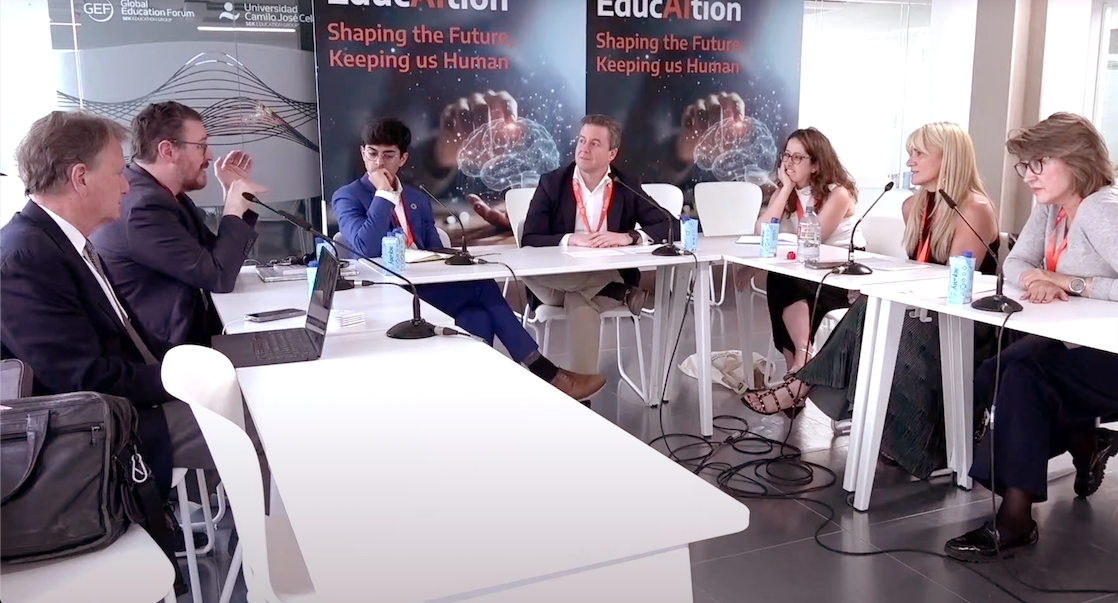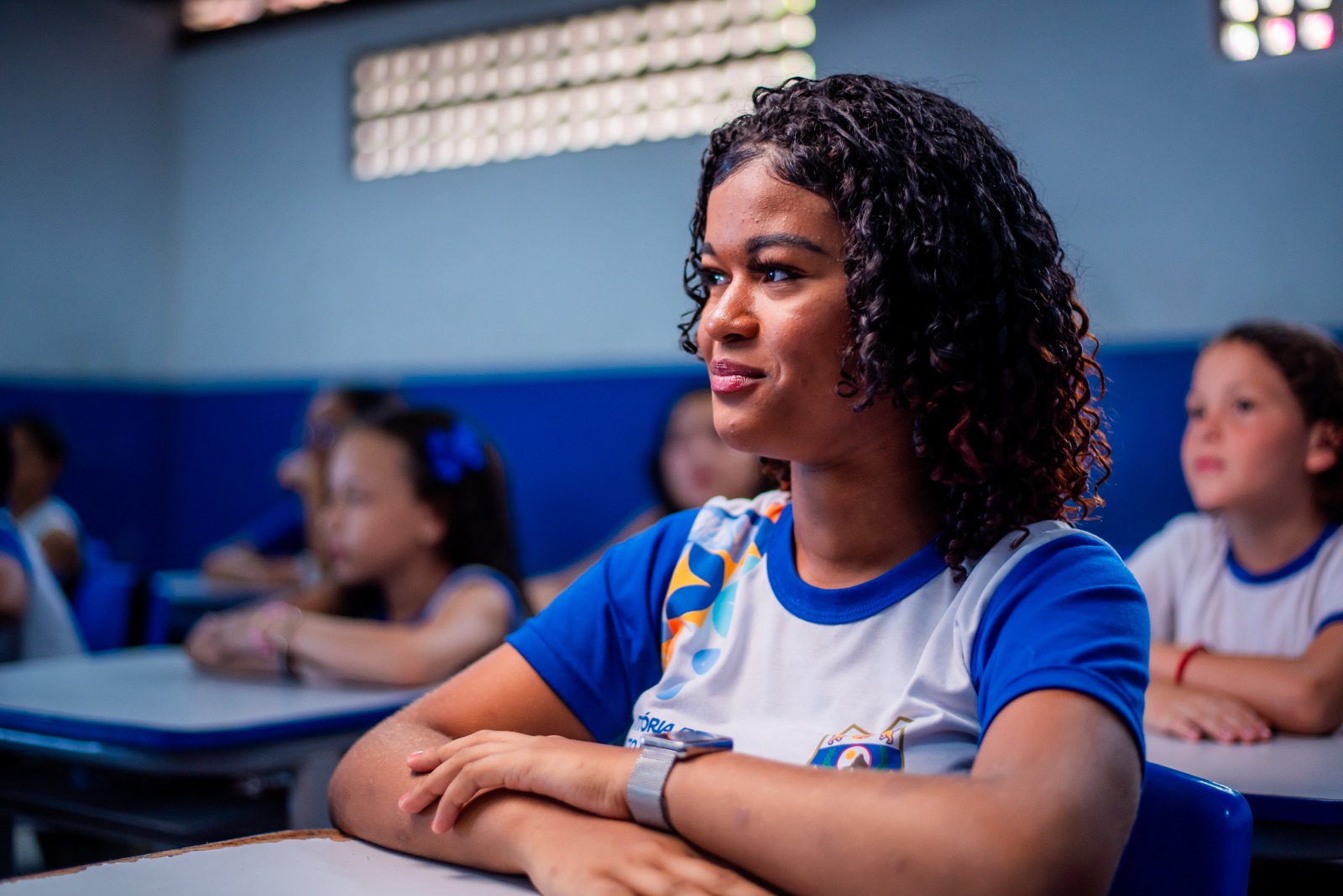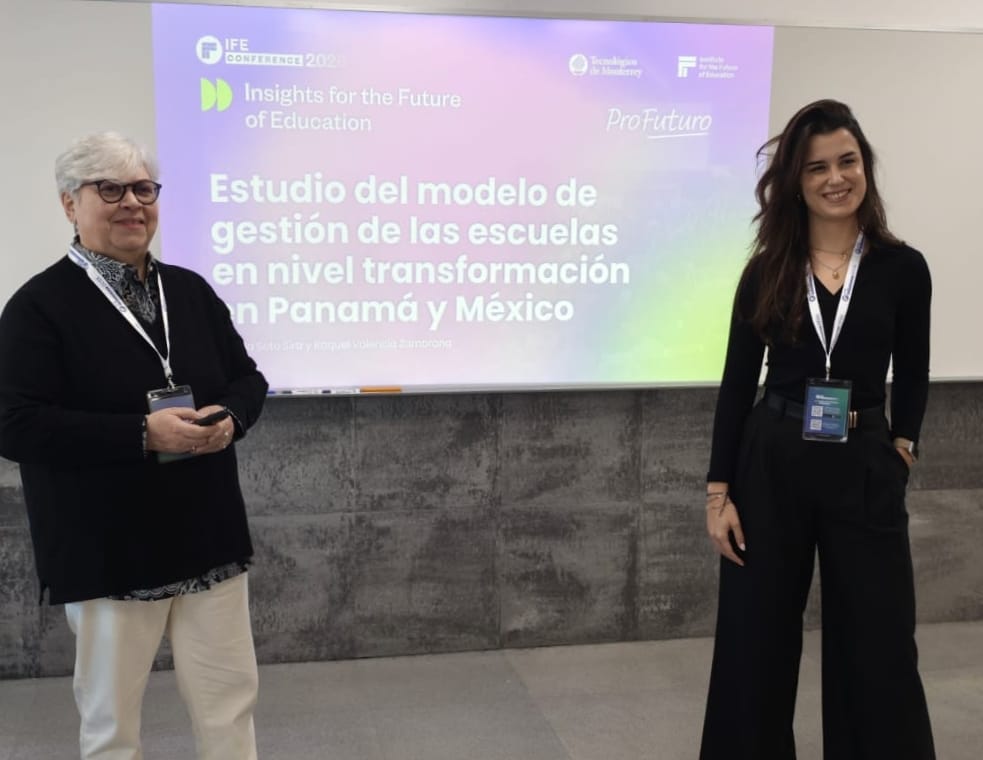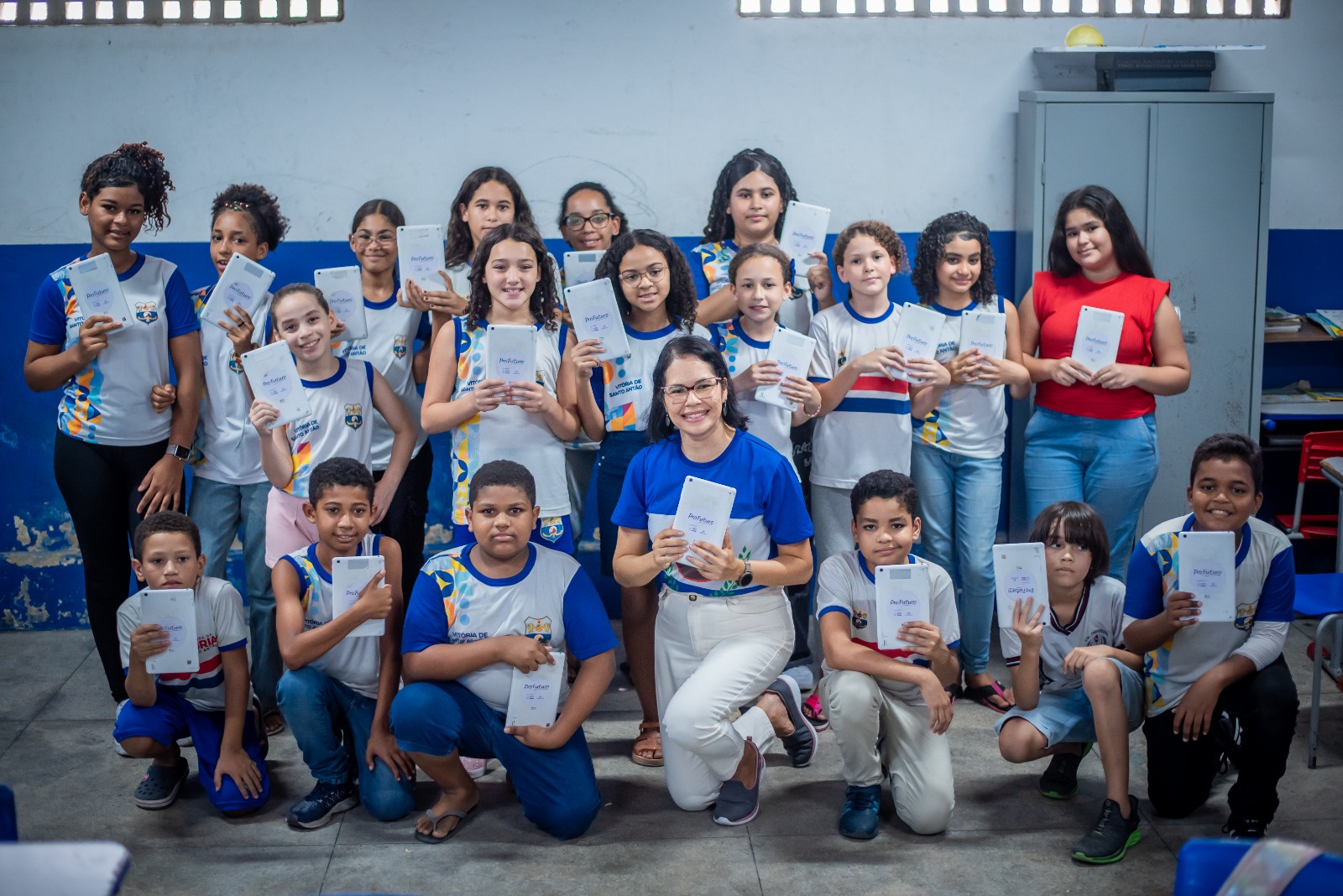On Wednesday, 8th May, we took part in the Global Education Forum titled “EducAItion: Shaping the Future, Keeping Us Human”. The event brought together a global network of professionals from different sectors to discuss the future of education, redefine its goals and propose changes to educational models.
During the panel discussion titled “Globalising education with AI”, Magdalena Brier, our managing director, shared the stage with experts such as Enrique González, Senior Partner at McKinsey & Company, Ben Nelson, Chairman & CEO of the Minerva Project, Zubair Junjunia, founder of Znotes, Marc Rottenberg, director and founder of the Center for AI and Digital Policy, and Andra Ehrenkranz, member of the Universal Education Council. The discussion focused on how artificial intelligence can break down geographical barriers in education to promote global cooperation and intercultural understanding.
During her speech, Brier highlighted the importance of ensuring inclusive and equitable use of AI in education. She shared the findings of two research studies conducted in partnership with UNESCO and the Organisation of Ibero-American States, pointing to the challenges and opportunities in the field along with the current and future trends in the development of AI in the sector in the Ibero-American region. She emphasised the efforts to be made in the development of public policies, inclusiveness, equitable access, teacher preparation, quality, ethics, data collection, use and dissemination and meaningful research.
Junjunia added to Brier’s perspective by addressing the need to use AI to connect people in a globalised world. He mentioned paradigm shifts and changes in digital natives. He talked about how students have moved ahead of institutions and how the latter have to catch up with them, and he even made a comparison between generations, indicating that there are significant differences between them to be taken into account.
Ben Nelson began his speech with a hard-hitting declaration: “The tools that are supposedly available aren’t actually there”. To endorse his argument, he provided several examples accompanied by revealing statistics. One of the most striking ones was as follows: “Did you know that if you’re born at the top of the socio-economic distribution, you’re 24 times more likely to do well in the SAT (Scholastic Assessment Test)? This test, widely used in the United States, assesses the academic skills of high school students and their readiness for university education”.
Nelson emphasised that many of the artificial intelligence tools are designed for people in privileged contexts, pointing to the urgent need for a change in this trend. He ended his speech with a thought-provoking reflection, indicating that educational institutions that boast positive results tend to resist change, while those in low-resource environments constantly look for ways of adapting and improving. The exponential growth of artificial intelligence could open up exciting new opportunities in the field of education.
In addition to these arguments, we should mention some interesting ideas put forward by Andra Ehrenkranz, who discussed the importance of digital skills and the building of digital citizens in the world and underlined how communities living in digitised environments can help to break down global barriers, while Marc Rotenberg addressed the importance of critical thinking when it comes to impact assessments, measuring success, constantly participating and using AI in education. Enrique González from McKinsey & Company, who chaired the debate, brought it to an end by encouraging cooperation between players so as to continue progressing towards the globalisation of education with AI.
In addition to allowing us to contribute our expertise in education, technology and innovation and showing how we measure the educational impact and apply it to our global intervention strategy, attending these events involving leaders and experts broadens our horizons and encourages us to improve the quality of the education we offer at ProFuturo.
Don’t miss the full event here!
In an increasingly globalised, technological and digital world we have to find the right way of using these tools and enhancing one of the greatest pillars of social growth: education. We’ll continue to innovate in the education sector, empowering digital skills, training teachers and reaching more and more children for the sake of a better future!
#EducatingTransforms
Do you want to know more about ProFuturo’s commitment to education?
Further information available at: https://profuturo.education/
X: @ProFuturo_
IG: @profuturo_
FB: @ProFuturoEducation
YT: ProFuturo
LK: ProFuturoEducation






